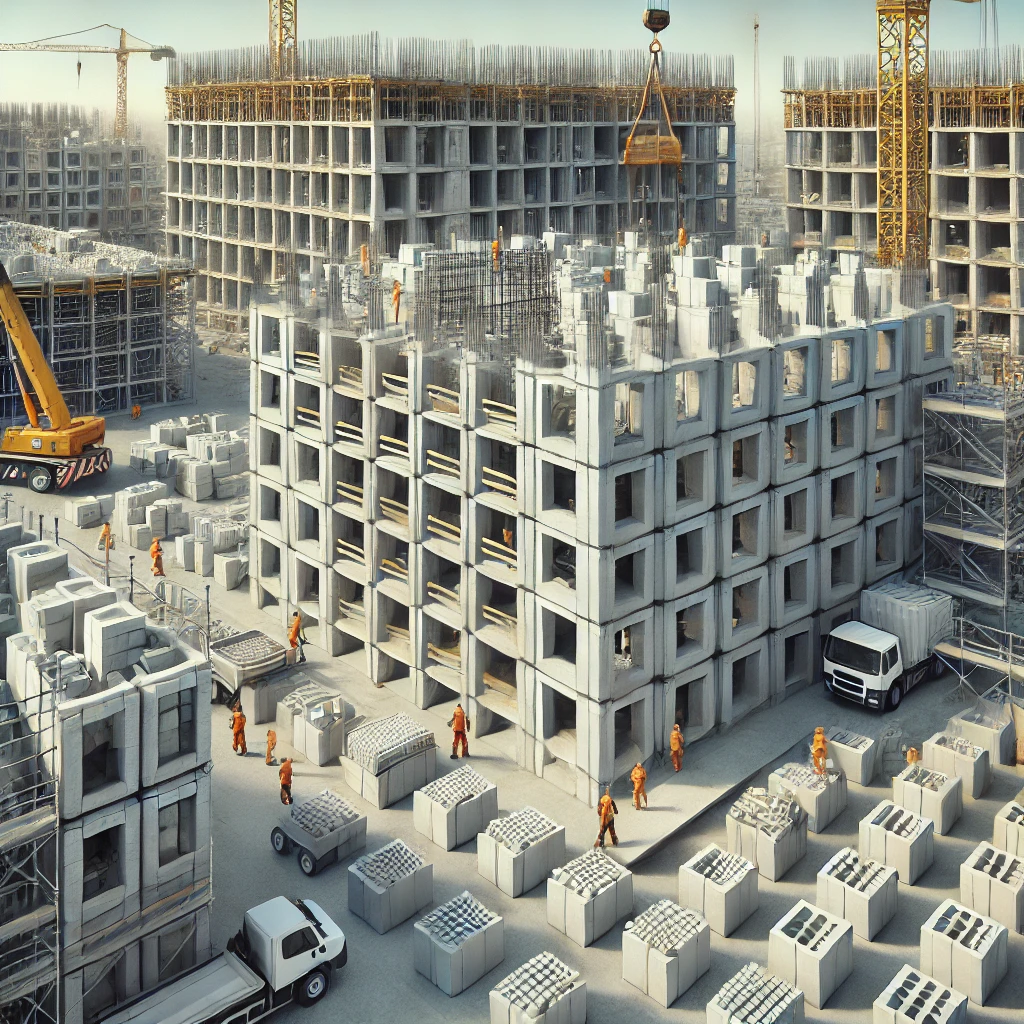In today's fast-paced world, the term "building blocks construction" represents more than just the literal stacking of bricks or materials to form structures. It signifies a powerful concept that resonates across various industries—from architecture and civil engineering to education and technology. At its core, building blocks construction embodies the idea of breaking down complex projects into smaller, manageable components that can be assembled systematically to create grand and lasting structures.
1. What is Building Blocks Construction?
Building blocks construction refers to the method of using standardized modular units, often made from materials like concrete, stone, wood, or even advanced composites, to form larger structures. These building blocks are the fundamental elements, serving as the core units in the design and assembly of construction projects. Whether it's skyscrapers, residential homes, or commercial buildings, these blocks provide a scalable and flexible approach to modern construction.
This modular approach has gained popularity due to its numerous advantages over traditional construction techniques. Not only does it offer flexibility and scalability, but it also enhances efficiency, reduces costs, and minimizes waste in construction processes.
2. Benefits of Building Blocks Construction
The concept of building blocks construction is not new, but its application has evolved over time, providing a range of benefits:
-
Modularity and Flexibility: Modular blocks can be easily adapted and reconfigured for different architectural designs. This flexibility allows architects and engineers to experiment with various layouts, enabling innovative designs without compromising structural integrity.
-
Cost Efficiency: Pre-fabricated building blocks reduce the time and cost associated with traditional construction. By producing modular units off-site, labor costs, material waste, and on-site construction time are significantly minimized.
-
Sustainability: Many building blocks today are made from sustainable materials, reducing the environmental impact of construction projects. Additionally, modular construction techniques produce less waste, promoting eco-friendly practices.
-
Scalability: Building blocks can be scaled up or down depending on the size of the project. Whether you're constructing a small home or a massive commercial complex, the modular system allows for easy adaptation.
-
Ease of Assembly: With pre-fabricated blocks, construction becomes more like assembling a puzzle rather than building from scratch. This reduces the need for skilled labor and accelerates project timelines.
3. Applications in Modern Architecture and Construction
Building blocks construction has found its way into various sectors, including:
-
Residential Buildings: Prefabricated modular homes are gaining popularity as a faster, cheaper, and more sustainable alternative to traditional homes. These homes can be customized to meet the specific needs of homeowners and can be assembled quickly.
-
Commercial Complexes: For large commercial structures, modular construction allows for the quick assembly of office spaces, hotels, and retail buildings. This method ensures that construction timelines are met without sacrificing quality or design innovation.
-
Skyscrapers: Advances in engineering have enabled the use of modular blocks in the construction of skyscrapers, allowing for the efficient assembly of multi-story buildings without the prolonged timelines of traditional high-rise construction.
-
Infrastructure Projects: Modular blocks are also used in the construction of bridges, tunnels, and other infrastructure projects. These blocks provide structural stability while reducing the time needed for large-scale infrastructure development.
4. Building Blocks Beyond Construction
While the concept of building blocks construction is most commonly associated with physical structures, its principles have expanded into other fields such as:
-
Education: In STEM education, students are taught to approach complex problems using building block techniques. By breaking down problems into smaller, manageable parts, they can more easily find solutions—whether in engineering, programming, or design.
-
Software Development: In the world of technology, developers often think of software as being constructed with "building blocks" of code. Modular programming allows developers to build complex applications by reusing standardized pieces of code, similar to how physical structures are built from modular blocks.
-
Business Strategy: Even business models and strategies can be seen through the lens of building blocks construction. By focusing on the foundational components of a business—such as operations, marketing, finance, and customer service—companies can build scalable and sustainable growth strategies.
5. The Future of Building Blocks Construction
As technology continues to evolve, the future of building blocks construction looks promising. 3D printing is already beginning to revolutionize the way modular blocks are produced, offering unprecedented customization options. In addition, advances in material science are leading to the creation of stronger, more sustainable, and more versatile building blocks.
With urbanization on the rise and a growing emphasis on sustainability, the construction industry is poised to adopt more innovative methods. Modular and building blocks construction will likely play a pivotal role in shaping the cities of the future—where structures are built faster, cheaper, and greener.
Conclusion
Building blocks construction represents a modern approach to architecture, engineering, and design, blending simplicity with innovation. Its wide range of applications, from housing and commercial projects to technology and education, demonstrates its versatility. As the demand for efficient, scalable, and sustainable solutions grows, the principles behind building blocks construction will continue to redefine how we create and innovate in the built environment. Whether in a literal sense—through the physical assembly of modular blocks—or metaphorically—through strategic approaches in various industries—the concept remains a cornerstone of progress.
To buy RERA Certified & DTCP Approved Gated Community Villa Open Plots in Andhra Pradesh & Telangana please Contact:
For Sales : 8179712384
Mail : sales@openplots.net
